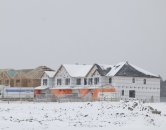Stay informed
Weekly Quiz: Trillionaires, Trade Wars, and the Cost of Living
1
2
const title = "Weekly Quiz: Trillionaires, Trade Wars, and the Cost of Living"; const date = "November 08, 2025"; const data = [ { image: "https://walrus-assets.s3.amazonaws.com/img/Chow_ElonMusk_1800.jpg", title: "Elon Musk Could Soon Be the World’s First Trillionaire", url: "https://thewalrus.ca/elon-musk-wants-to-be-a-trillionaire-that-doesnt-bode-well-for-humanity/", question: "Tesla’s proposed compensation package for CEO Elon Musk promises him 423.7 million shares of Tesla stock—roughly equal to $900 billion—but the deal is contingent on Musk’s performance. What is the minimum increase in profits he must deliver to receive this massive reward? ", options: [ "He must multiply company profits over eight times", "He must multiply company profits over fifteen times", "He must multiply company profits over twenty times", "He must multiply company profits over twenty-four times", ], answer: "He must multiply company profits over twenty-four times", correct: " In order to receive his shares of Tesla stock, Musk has to stay at the company over the next decade, and in that time period, he must increase its market value eightfold, multiply profits over twenty-four times, and oversee the commercial deployment of 1 million autonomous taxis as well as 1 million humanoid robots (a branch of Tesla’s business that has been performing especially poorly). Tesla shareholders voted to approve the proposal on November 6, putting Musk on track to become a trillionaire before the end of this decade.", incorrect: " In order to receive his shares of Tesla stock, Musk has to stay at the company over the next decade, and in that time period, he must increase its market value eightfold, multiply profits over twenty-four times, and oversee the commercial deployment of 1 million autonomous taxis as well as 1 million humanoid robots (a branch of Tesla’s business that has been performing especially poorly). Tesla shareholders voted to approve the proposal on November 6, putting Musk on track to become a trillionaire before the end of this decade.", }, { title: "I Have Watched Battlestar Galactica Every Year for Nineteen Years", url: " https://thewalrus.ca/i-have-watched-battlestar-galactica-every-year/", question: "Battlestar Galactica’s exploration of what leads a person to violence has left a marked impact on how journalist Khawla Nakua reports on war and crime. For nearly two decades, she has made a ritual out of watching the show in its entirety every summer. What is the title of the very first episode Nakua ever watched?", options: [ "“Blood on the Scales”", "“A Measure of Salvation”", "“Maelstrom”", "“Exodus”", ], answer: "“A Measure of Salvation”", correct: "Battlestar Galactica depicts how machines called Cylons, who look like humans and were created by humans, destroyed most of human civilization. Nineteen years ago, Nakua watched her very first episode: “A Measure of Salvation.” Its opening scene ends with one character saying: “We start destroying entire races, even mechanical races, we’re liable to tear off a piece of a man’s soul . . . . Posterity really doesn’t look too kindly on genocide.” “Today,” writes Nakua, reflecting on the violence that is unfolding in Gaza, “it feels to me like he’s talking about us.”", incorrect: "Battlestar Galactica depicts how machines called Cylons, who look like humans and were created by humans, destroyed most of human civilization. Nineteen years ago, Nakua watched her very first episode: “A Measure of Salvation.” Its opening scene ends with one character saying: “We start destroying entire races, even mechanical races, we’re liable to tear off a piece of a man’s soul . . . . Posterity really doesn’t look too kindly on genocide.” “Today,” writes Nakua, reflecting on the violence that is unfolding in Gaza, “it feels to me like he’s talking about us.”", }, { image: "https://walrus-assets.s3.amazonaws.com/img/WAL_Web-Affordibility_Nov25_004.jpg", title: "Are We Going to Feel Broke Forever", url: " https://thewalrus.ca/are-we-going-to-feel-broke-forever/", question: "Housing is one of the biggest drivers of affordability-related stress in Canada. Despite efforts to curb inflation, rents have surged across major cities. According to Statistics Canada, which Canadian city saw rent increase by nearly 71 percent between 2019 and 2025?", options: [ "Vancouver", "Toronto", "Montreal", "Calgary", ], answer: "Montreal", correct: "For decades, a widely accepted guideline for budgeting was that shelter costs should take up about 30 percent of one's salary; in practice, many Canadians typically spend somewhere between 35 and 50 percent of their salary on housing. The cost of rent has outpaced inflation, and demand for housing is pushing up costs. According to Statistics Canada, rents in Vancouver went up about 27 percent between the first quarter of 2019 and the first quarter of 2025; in Montreal, they went up nearly 71 percent during that same period.", incorrect: "For decades, a widely accepted guideline for budgeting was that shelter costs should take up about 30 percent of one's salary; in practice, many Canadians typically spend somewhere between 35 and 50 percent of their salary on housing. The cost of rent has outpaced inflation, and demand for housing is pushing up costs. According to Statistics Canada, rents in Vancouver went up about 27 percent between the first quarter of 2019 and the first quarter of 2025; in Montreal, they went up nearly 71 percent during that same period.", }, { title: "Sorry, Trump. Americans Still See Canada as a Friend", url: "https://thewalrus.ca/americans-still-like-canada-yes-even-republicans/", question: "Despite escalating tensions between Canada and the United States, a new Leger poll has found that most Americans still hold their northern neighbour in high regard. Notwithstanding the current trade dispute, what percentage of Americans would describe the Canada–US relationship positively?", options: [ "45 percent", "66 percent", "73 percent", "92 percent", ], answer: "73 percent", correct: "Overall, the data points to the same conclusion: Americans, including Trump supporters, do not harbour much animosity toward Canada. And when asked to describe the bilateral relationship “outside of the current trade dispute,” 73 percent call it good or even—as 87 percent of Republican voters did—excellent. Canada’s image among Americans remains largely intact for now.", incorrect: "Overall, the data points to the same conclusion: Americans, including Trump supporters, do not harbour much animosity toward Canada. And when asked to describe the bilateral relationship “outside of the current trade dispute,” 73 percent call it good or even—as 87 percent of Republican voters did—excellent. Canada’s image among Americans remains largely intact for now.", }, ];
The post Weekly Quiz: Trillionaires, Trade Wars, and the Cost of Living first appeared on The Walrus.



Comments
Be the first to comment